- Home
- Nora Roberts
The Reef Page 6
The Reef Read online
Page 6
Silas VanDyke. Matthew could conjure up his face if he needed to, the voice, the build, even the smell. No matter how many years passed, he forgot nothing.
And he knew, as he had known as a helpless, grief-ravaged teenager, that one day he would find the amulet, and use it against VanDyke.
For revenge.
It was odd, that with such dark and violent thoughts hovering in his mind as he drifted to sleep, he would dream of Tate.
Swimming in impossibly clear waters, free of weight, of equipment, slick and agile as a fish. Deeper and deeper, to where the sun could no longer penetrate. The fans waved and toothy clumps of colors gleamed like jewels and carried bright fish in their pockets.
Still deeper, to where the colors—reds and oranges and yellows—faded to cool, cool blue. Yet there was no pressure, no need to equalize, no fears. Only a bursting sense of freedom that mellowed into complete and utter contentment.
He could stay here forever, in this soundless world, with nothing on his back, neither tanks nor worries.
There. There below him, a child’s fairy-tale image of a sunken ship. The masts, the hull, the tattered flags waving in the current. It lay tilted in the bed of sand, impossibly whole and impossibly clear. He could see the cannons, still aimed against ancient enemies. And the wheel waiting for its captain ghost to steer it.
Delighted, he swam toward it, through swirls of fish, past an octopus that curled its tentacles and ballooned away, under the shadow of a giant ray that danced overhead.
He circled the deck of the Spanish galleon, read the proud lettering that christened her the Isabella. The crow’s nest creaked above him, like a tree in the wind.
Then he saw her. Like a mermaid, she hovered just out of reach, smiling a siren’s smile, gesturing with lovely, graceful hands. Her hair was long, not a flaming cap, but long, silken ropes of fire waving and swirling over her shoulders and naked breasts. Her skin was like a pearl, white and gleaming.
Her eyes were the same, green and amused.
As if a tide had swept him, he was helpless to do anything but go to her.
Her arms went around him, satin chains. Her lips parted for his and were sweet as honey. When he touched her, it was as if he’d waited all his life for that alone. The feel of her skin sliding under his hand, the quiver of muscle as he aroused her. The drum of pulse under flesh.
The taste of her sigh was in his mouth. Then the slick and glorious heat enveloped as he slid inside her, as her legs wrapped around him and her body bowed back to take him deeper.
It was all dreamy movements, endless sensation. They drifted, rolling through the water in a soundless mating that left him weak and stunned and blissfully happy. He felt himself spill into her.
Then she kissed him, softly, deeply and with incredible sweetness. When he saw her face again, she was smiling. He reached for her, but she shook her head and danced away. He gave chase, and they frolicked like children, darting around the sunken ship.
She led him to a chest, laughing as she tossed back the lid and revealed the mountain of gold. Coins spilled as she dipped her hand in. The glint was like sunlight, and scattered with it were jewels of great size. Diamonds as big as his fist, emeralds larger than her eyes, pools of sapphires and rubies. Their color was dazzling against the cool gray of the world around them.
He dragged his hand through the chest, spilled a shower of star-shaped diamonds over her hair and made her laugh.
Then he found the amulet, the heavy gold chain, the blood and tears that studded the pendant. He could feel heat from it, as if it lived. Never in his life had he seen anything so beautiful, so compelling.
He held it up, looked at Tate’s delighted face through the circle of the chain, then slipped it over her head. She laughed, kissed him, then cupped the pendant in her hand.
Suddenly fire exploded from it, a spear of violent heat and light that slammed him back like a blow. He watched in horror as the fire grew, in size and intensity, covering her in a sheath of flame. All he could see were her eyes, anguished and terrified.
He couldn’t reach her. Though he fought and he struggled, the water that had been so calm and peaceful was a whirlwind of movement and sound. A tornado of sand funneled up, blinding him. He heard the lightning crack of the mast splitting, the seaquake roar that burst through the bed of sand and silt to tear through the hull of the ship like cannon fire.
Through it he heard screams—hers, his own.
Then it was gone, the flames, the sea, the wreck, the amulet. Tate. The sky was overhead, with its half disk of moon and splatter of stars. The sea was calm and ink-black, barely whispering against the boat.
He was alone on the deck of the Sea Devil, dripping sweat and gasping for breath.
CHAPTER 4
T ATE TOOK TWO dozen pictures of ballast and cannon as she and Matthew explored. He humored her by posing at the mouth of a corroded gun, or manned the camera himself to take shots of her among the rocks and patient fish. Together, they attached a crusted cannonball to a flotation and sent it up to the second team.
Then, after a tug on the line, the work began.
Maneuvering an airlift well requires skill, patience and teamwork. It was a simple tool, hardly more than a pipe, four inches in diameter and about ten feet long with an air hose. Pressurized air ran into the pipe, rising and creating suction that would vacuum water, sand and solid objects. It was as essential to a treasure hunter as a hammer to a carpenter. Used too quickly, or with too much power, it could destroy. Used too carelessly, the pipe would become clogged with conglomerate, shells, coral.
While Matthew ran the airlift, Tate examined and collected its fallout that spewed from the top of the pipe. It was hard and tedious work on both sides. Sand and light debris swirled, obscuring vision in a dirty cloud downcurrent. It took a sharp eye and endless patience to search through the fallout, load the bits and pieces and chunks into buckets to be hauled to the surface.
Matthew continued to make test holes with a steady, almost soothing rhythm. Stingrays basked in the fallout, apparently enjoying the massage of sand and small rock. Tate allowed herself to dream, imagining a slew of glinting gold bursting out of the pipe, like a jackpot in a slot machine.
Fantasies aside, she gathered fused nails, bits of conglomerate and the shards of broken pottery. They were every bit as fascinating to her as gold bullion. Her college studies in the past year had accented her love of history and the fragments of culture buried in the shifting sea.
Her long-term ambitions and goals were very clear. She would study, earn her degree, absorbing all the knowledge she could hold through books, lectures, and most of all, by doing. One day, she would join the ranks of scientists who sailed the oceans, plumbed the depths to discover and analyze the relics of doomed ships.
Her name would make an impact, and her finds from doubloons to iron spikes would matter.
Eventually, there would be a museum carrying the Beaumont name filled with artifacts.
Now and again as she worked, she would catch herself falling behind because she’d paused to wonder over a broken cup. What had it held the last time someone sipped from it?
When she nicked her finger on a sharp edge, she took it philosophically. The thin drip of blood washed away in the swirl.
Matthew signaled her through the cloud. In the hole, perhaps a foot deep, she saw the iron spikes crossed like swords. Caught between their calcified tips was a platter of pewter.
Forty feet of water didn’t prevent Tate from expressing her glee. She caught his hand and squeezed it, then blew him a kiss. Efficiently, she unhooked her camera from her belt and documented the find. Records, she knew, were essential to scientific discoveries. She might have spent some time examining it, gloating over it unscientifically, but Matthew was already moving off to dig another hole.
There was more. Each time they transferred the airlift, they would uncover another discovery. A clump of spoons cemented in coral, a bowl that even with a third of it m
issing caused Tate’s heart to slam against her ribs.
Time and fatigue ceased to exist. An audience of thousands watched the progress, small fish scanning the disturbed area for exposed worms. If one got lucky, dozens of others would rush in to search for food in a colorful flood of motion.
At his usual distance, the barracuda remained like a statue, looking on in grinning approval.
Matthew ran the lift like an artist, Tate thought. Probing here, then shifting with a delicacy that seemed to remove sand a grain at a time. He brushed away silt clouds with a wave of the pipe. If the wall of sand was parted by an object, he would back off the pipe, work carefully to prevent damage.
She saw with dazzled eyes a fragile piece of porcelain, a bowl with elegant rosebuds rimming its cup.
He would have left it for the time being, knowing that something that fragile when cemented to coral or some other object could be snapped off at the slightest touch.
But her eyes were so big with wonder, so bright with delight. He wanted to give her the bowl, see her face when she held it. Signaling her back, Matthew began the tedious and time-consuming process of whispering the sand clear. When he was satisfied, he handed her the pipe. Reaching below the bowl to the coral that had claimed it, Matthew worked it free.
It cost him some skin, but when he offered it to her, the nicks and scratches were forgotten. Her eyes glowed, then filled so unexpectedly both of them stared. Disconcerted, Matthew took the pipe back, jerked a thumb to the surface. He cracked the valve on the airlift, released a torrent of bubbles. Together, they swam up in the spray.
She didn’t speak, couldn’t. Grateful they were hampered by the airlift and her last bucket of conglomerate, she reached the side of the Adventure. Her father beamed over the side.
“You’ve been keeping us busy.” He’d pitched his voice over the roar of the compressor, winced when Buck shut it off. “We’ve got dozens of artifacts, Tate.” He hauled up the bucket she held out. “Spoons, forks, buckets, copper coins, buttons . . .” He trailed off when she held up the bowl. “My God. Porcelain. Unbroken. Marla.” His voice cracked on the name. “Marla, come over here and look at this.”
Reverently, Ray took the bowl from Tate. By the time she and Matthew had gotten aboard, Marla was sitting on deck, surrounded by debris, the flowered bowl in her lap, her video camera beside her.
“Pretty piece,” Buck commented. However casual the words, his voice betrayed his excitement.
“Tate liked it.” Matthew glanced toward her. She was standing in her wet suit, the tears that had threatened forty feet below flowing freely.
“There are so many things,” she managed. “Dad, you can’t imagine. Under the sand. All these years under the sand. Then you find them. Something like this.” After rubbing the heels of her hands over her face, she crouched by her mother, dared to skim a gentle fingertip over the rim of the bowl. “Not a chip. It survived a hurricane and more than two hundred and fifty years, and it’s perfect.”
She rose. Her fingers felt numb as she tugged at the zipper of her wet suit. “There was a platter, pewter. It’s caught between two iron spikes like a sculpture. You only had to close your eyes to see it heaped with food and set on a table. Nothing I’ve been studying comes close to doing it, to seeing it.”
“I figure we hit the galley area,” Matthew put in. “Plenty of wooden utensils, wine jugs, broken dishes.” Grateful, he accepted the cold juice Ray offered him. “I dug a lot of test holes, about a thirty-foot area. The two of you might want to move a few degrees north of that.”
“Let’s get started.” Buck was already suiting up. Casually, Matthew walked over to pour more juice.
“Saw a shark cruising,” he said in an undertone. It was well known among the partners that Marla paled and panicked at the thought of sharks. “Wasn’t interested in us, but it wouldn’t hurt to take a couple of bangsticks down.”
Ray glanced toward his wife, who was reverently documenting the latest treasures on video. “Better safe than sorry,” he agreed. “Tate,” he called out. “Want to reload the camera for me?”
Twenty minutes later, the compressor was pumping again. Tate worked at the big drop-leaf table in the deckhouse with her mother, cataloguing every item they’d brought up from the wreck.
“It’s the Santa Marguerite.” Tate fingered a spoon before setting it in the proper pile. “We found the ordinance mark on one of the cannons. We found our Spanish galleon, Mom.”
“Your father’s dream.”
“And yours?”
“And mine,” Marla agreed with a slow smile. “Used to be I just went along for the ride. It was such a nice, interesting hobby, I thought. It gave us such adventurous vacations, and was certainly a change from our mundane jobs.”
Tate looked up, a pucker of a frown between her brows. “I never knew you thought your job was mundane.”
“Oh, being a legal secretary is fine except when you start asking yourself why you didn’t have the gumption to be the lawyer.” She moved her shoulders. “The way I was raised, Tate, honey, a woman didn’t move in a man’s world except to quietly pick up behind him. Your grandma was a very old-fashioned woman. I was expected to work in an acceptable job until I found a suitable husband.” She laughed and set aside a pewter cup with a missing handle. “I just got lucky on the husband part. Very lucky.”
This, too, was a new discovery. “Did you want to be a lawyer?”
“Never occurred to me,” Marla admitted. “Until I was heading on toward forty. A dangerous time for a woman. I can’t say I looked back when your father decided to retire. I did the same, and I thought I was more than content to drift with him, playing at treasure-hunting. Now seeing these things.” She picked up a silver coin. “Makes me realize we’re doing something important. Valuable in its way. I never thought to make a mark again.”
“Again.”
Marla looked up with a smile. “I made my mark when I had you. This is wonderful, and it’s exciting. But you’ll always be treasure enough for your father and me.”
“You’ve always made me feel like I can do anything. Be anything.”
“You can.” Marla glanced over. “Matthew, come join us.”
“I don’t want to interrupt.” He felt out of his depth, and clumsy, stepping into the family unit.
“Don’t be silly.” Marla was already on her feet. “I bet you’d like some coffee. I’ve got fresh in the galley. Tate and I are organizing our treasure trove.”
Matthew scanned the scatter of artifacts over the table. “I think we’re going to need more room.”
Marla laughed as she stepped back in with the coffee. “Oh, I like an optimistic man.”
“Realistic,” Tate corrected and patted the seat on the settee in invitation. “My diving partner is far from optimistic.”
Not certain if he was amused or insulted, Matthew sat beside her and sampled his coffee. “I wouldn’t say that.”
“I would.” Tate dived into the bowl of pretzels her mother set out. “Buck’s the dreamer. You like the life—sun, sea, sand.” Nibbling, she leaned back. “No real responsibilities, no real ties. You don’t expect to find some crusted chest filled with gold doubloons, but you know how to make do with the occasional trinket. Enough to keep you in shrimp and beer.”
“Tate.” Marla shook her head, muffled a laugh. “Don’t be rude.”
“No, she’s hitting it.” Matthew bit into a pretzel. “Let her finish.”
“You’re not afraid of hard work because there’s always plenty of time for lying in a hammock, snoozing. There’s the excitement of the dive, of the discovery, and always the turnover value rather than the intrinsic value of some small booty.” She handed him a silver spoon. “You’re a realist, Matthew. So when you say we’ll need more room, I believe you.”
“Fine.” He realized no matter how he weighed it, he was insulted. He tossed the spoon with a clatter back onto the pile. “I figure we can use the Sea Devil for storage.” When she angled h
er chin, peered down her nose, he sneered at her. “Buck and I can bunk here, on deck. We can use the Adventure for our workstation. We dive from here, we clean the conglomerate and artifacts here, then transport them to the Sea Devil.”
“That seems very sensible,” Marla agreed. “After all, we have two boats, we might as well make full use of both of them.”
“All right. If Dad and Buck agree, so will I. In the meantime, Matthew, why don’t you help me bring in another load from on deck?”
“Fine. Thanks for the coffee, Marla.”
“Oh, you’re welcome, sweetie.”
“I’m going to have to run to Saint Kitts later,” Tate began as they started out. “To have the film developed. Want to come with me?”
“Maybe.”
She caught the edge to his voice and smothered a smile. “Matthew.” To stop his progress, she touched a hand to his arm. “Do you know why I think we work so well together down there?”
“No.” He turned. Her skin was still an impossible alabaster even after weeks at sea. He could smell the cream she used to protect it, and the perfume that was salt and sea air that clung to her hair. “But you’re going to tell me.”
“I think it’s because you’re realistic, and I’m idealistic. You’re reckless, I’m cautious. Contradicting traits inside ourselves and against each other. Somehow we make a balance.”
“You really like to analyze things, don’t you, Red?”

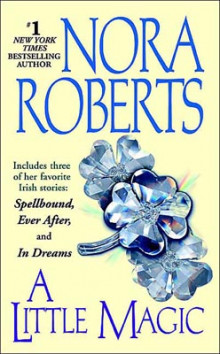 A Little Magic
A Little Magic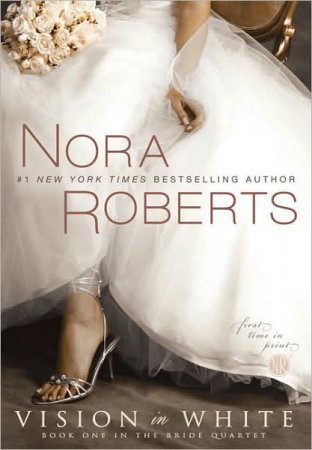 Vision in White
Vision in White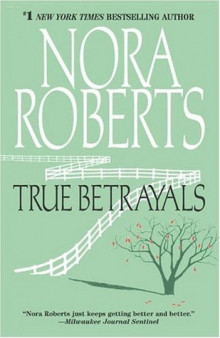 True Betrayals
True Betrayals The Next Always
The Next Always A Man for Amanda
A Man for Amanda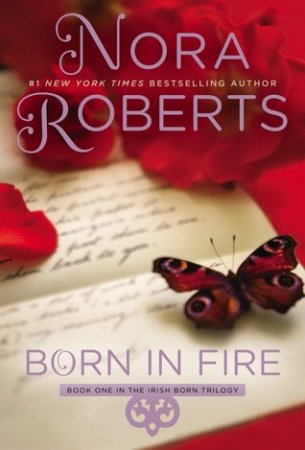 Born in Fire
Born in Fire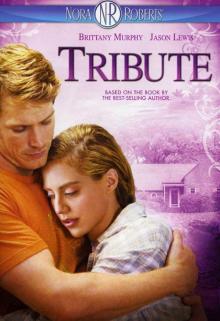 Tribute
Tribute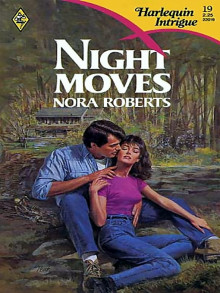 Night Moves
Night Moves Dance Upon the Air
Dance Upon the Air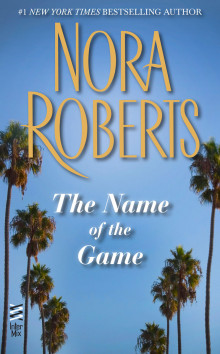 The Name of the Game
The Name of the Game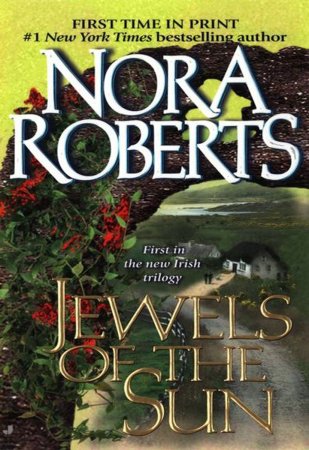 Jewels of the Sun
Jewels of the Sun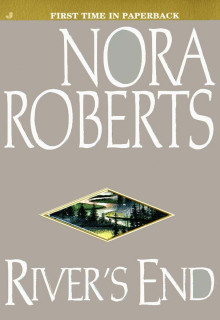 River's End
River's End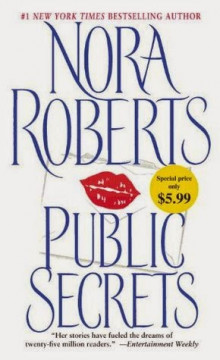 Public Secrets
Public Secrets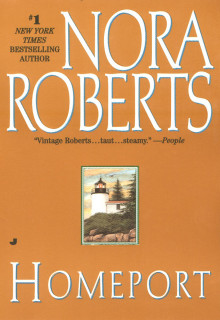 Homeport
Homeport Private Scandals
Private Scandals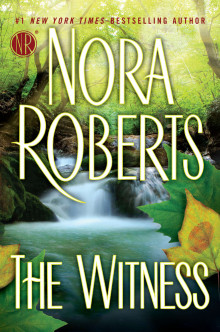 The Witness
The Witness Blithe Images
Blithe Images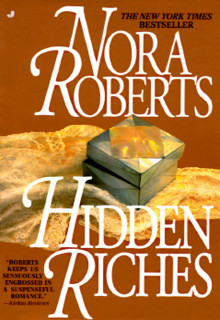 Hidden Riches
Hidden Riches Key of Light
Key of Light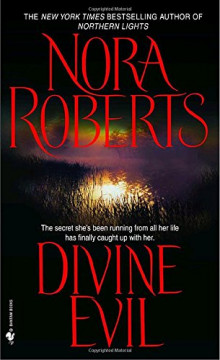 Divine Evil
Divine Evil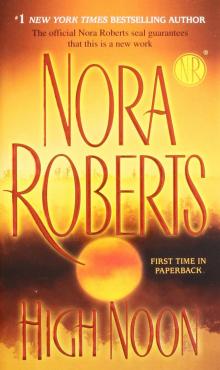 High Noon
High Noon Blue Dahlia
Blue Dahlia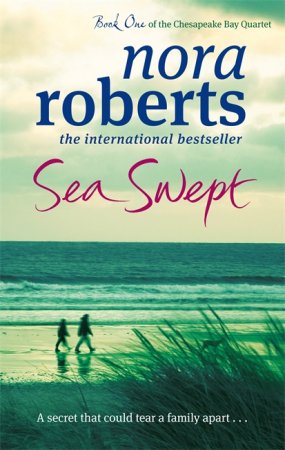 Sea Swept
Sea Swept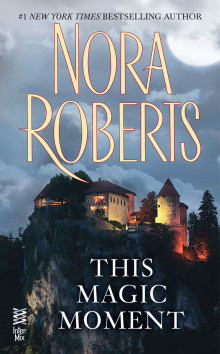 This Magic Moment
This Magic Moment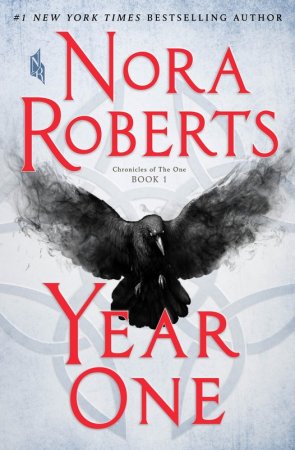 Year One
Year One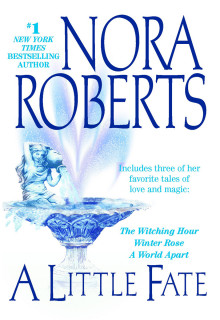 A Little Fate
A Little Fate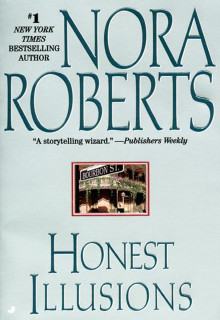 Honest Illusions
Honest Illusions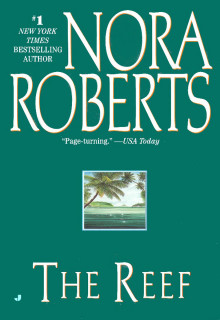 The Reef
The Reef Shelter in Place
Shelter in Place The Hollow
The Hollow Holding the Dream
Holding the Dream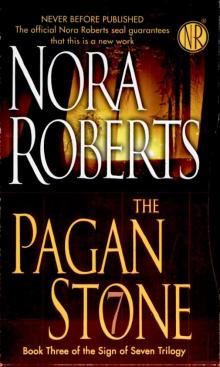 The Pagan Stone
The Pagan Stone Savour the Moment
Savour the Moment The Perfect Hope
The Perfect Hope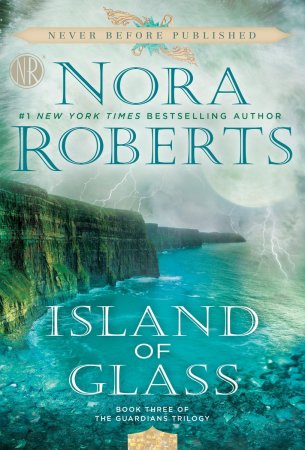 Island of Glass
Island of Glass Happy Ever After
Happy Ever After Bed of Roses
Bed of Roses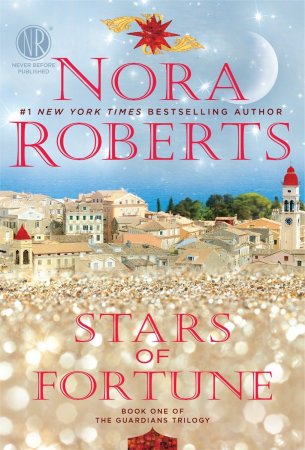 Stars of Fortune
Stars of Fortune Dark Witch
Dark Witch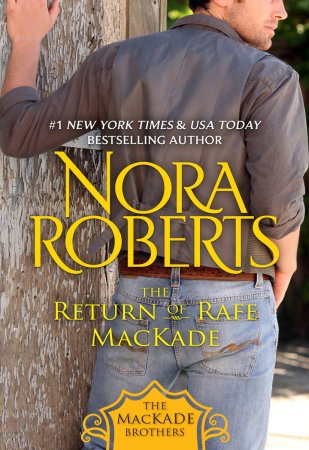 The Return of Rafe MacKade
The Return of Rafe MacKade Chesapeake Blue
Chesapeake Blue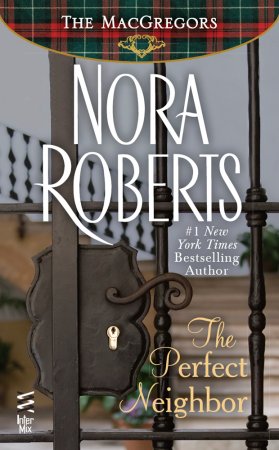 The Perfect Neighbor
The Perfect Neighbor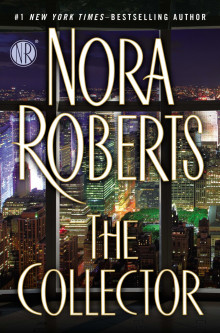 The Collector
The Collector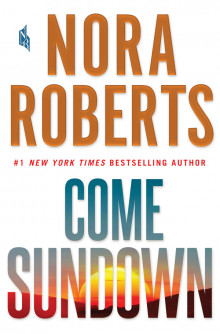 Come Sundown
Come Sundown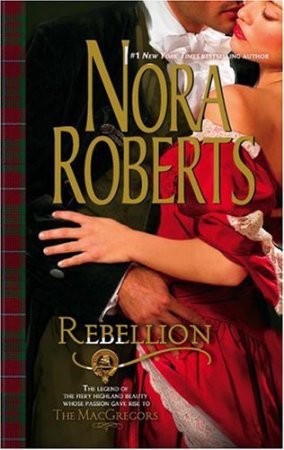 Rebellion
Rebellion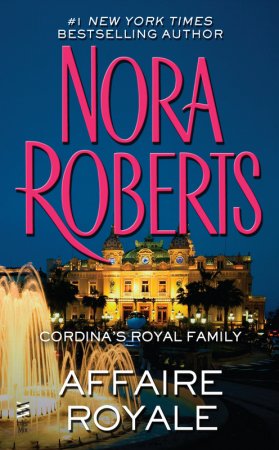 Affaire Royale
Affaire Royale Daring to Dream
Daring to Dream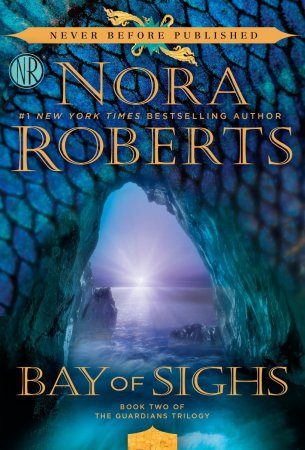 Bay of Sighs
Bay of Sighs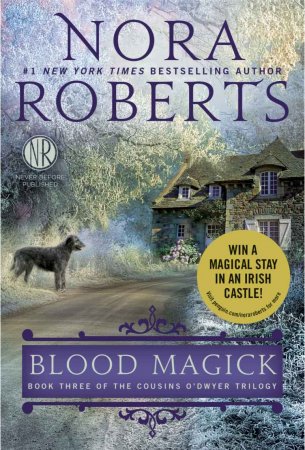 Blood Magick
Blood Magick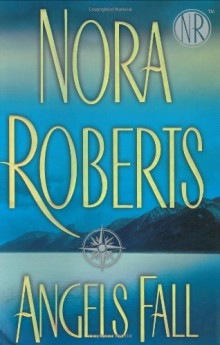 Angels Fall
Angels Fall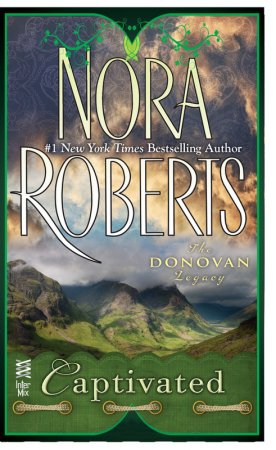 Captivated
Captivated The Last Boyfriend
The Last Boyfriend Irish Thoroughbred
Irish Thoroughbred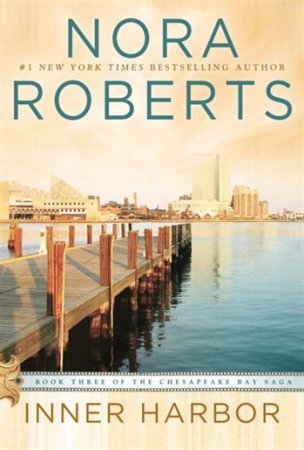 Inner Harbor
Inner Harbor The Right Path
The Right Path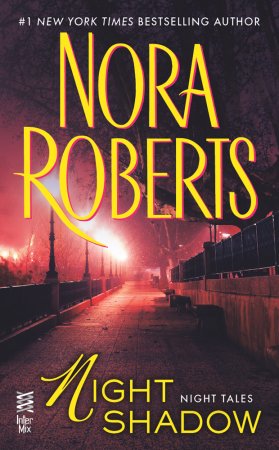 Night Shadow
Night Shadow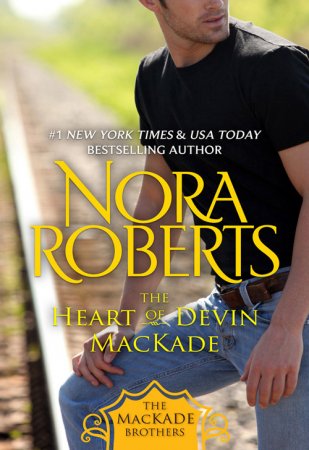 The Heart of Devin MacKade
The Heart of Devin MacKade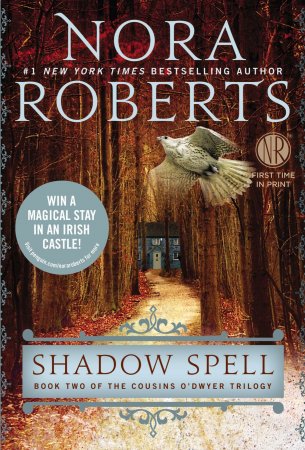 Shadow Spell
Shadow Spell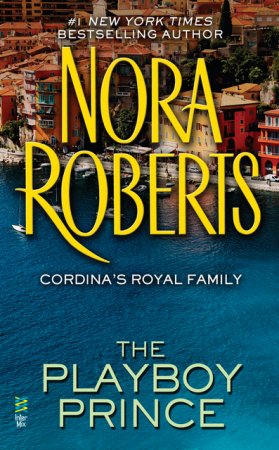 The Playboy Prince
The Playboy Prince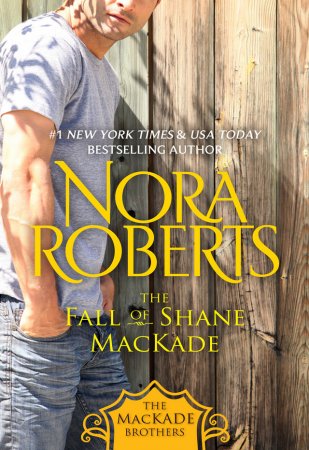 The Fall of Shane MacKade
The Fall of Shane MacKade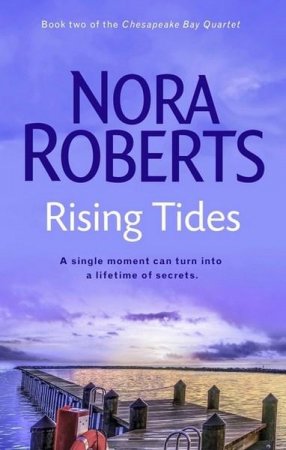 Rising Tides
Rising Tides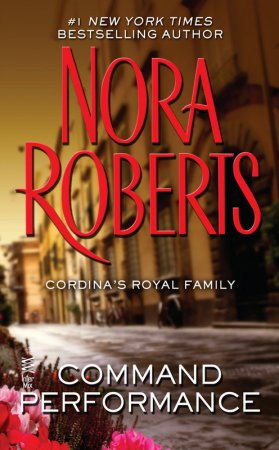 Command Performance
Command Performance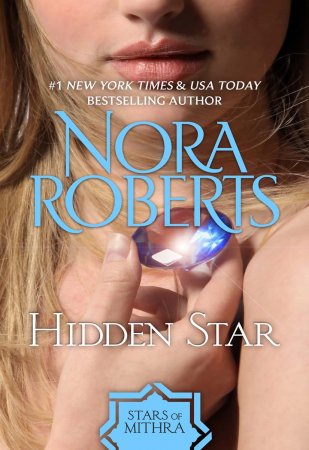 Hidden Star
Hidden Star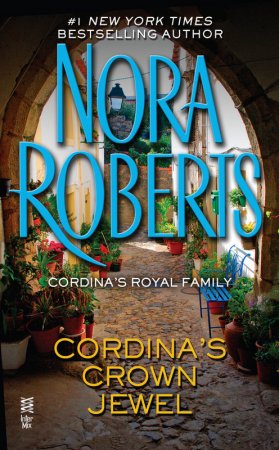 Cordina's Crown Jewel
Cordina's Crown Jewel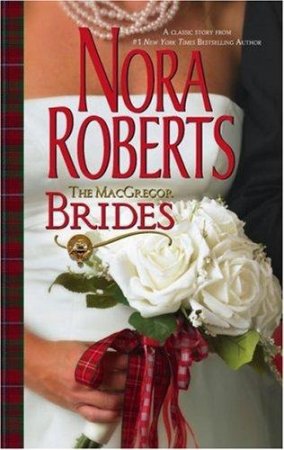 The MacGregor Brides
The MacGregor Brides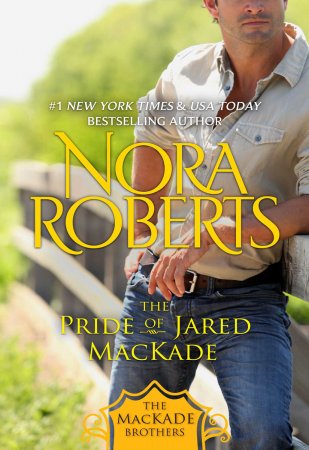 The Pride of Jared MacKade
The Pride of Jared MacKade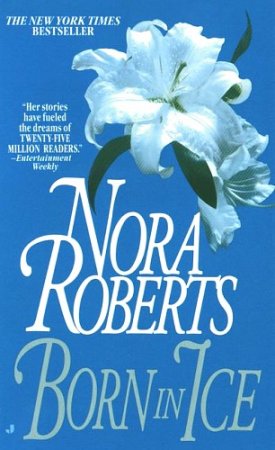 Born in Ice
Born in Ice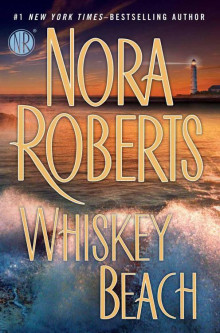 Whiskey Beach
Whiskey Beach The Last Honest Woman
The Last Honest Woman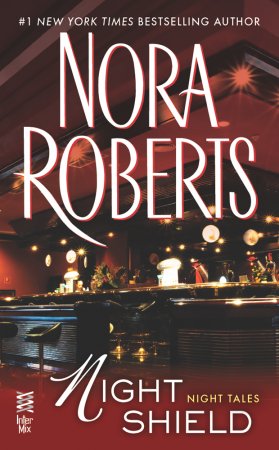 Night Shield
Night Shield Born in Shame
Born in Shame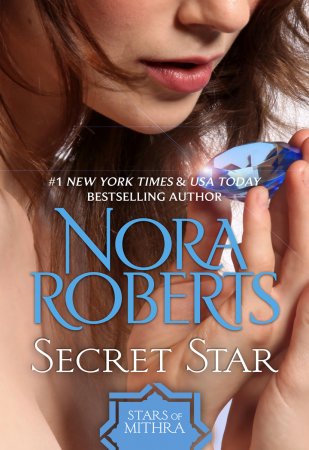 Secret Star
Secret Star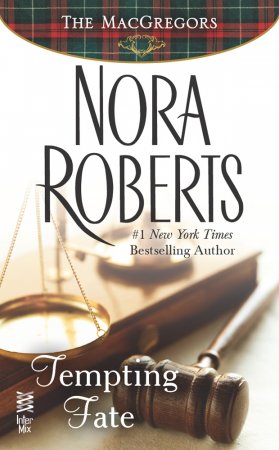 Tempting Fate
Tempting Fate Nightshade
Nightshade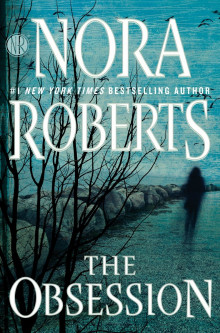 The Obsession
The Obsession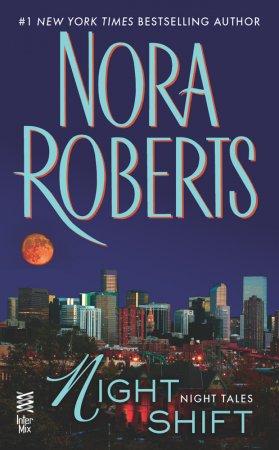 Night Shift
Night Shift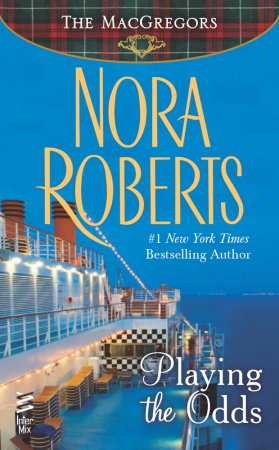 Playing The Odds
Playing The Odds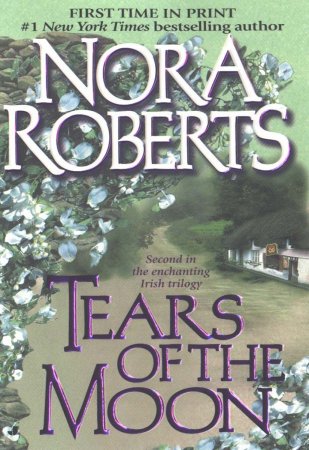 Tears of the Moon
Tears of the Moon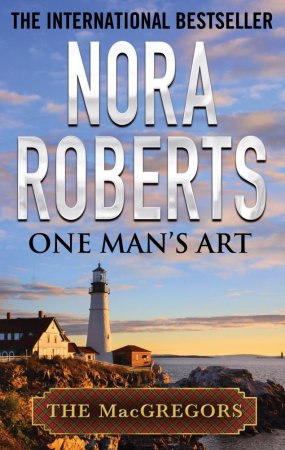 One Man's Art
One Man's Art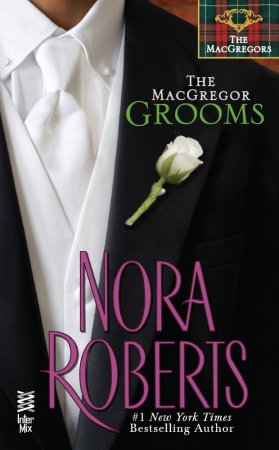 The MacGregor Groom
The MacGregor Groom Irish Rebel
Irish Rebel Morrigan's Cross
Morrigan's Cross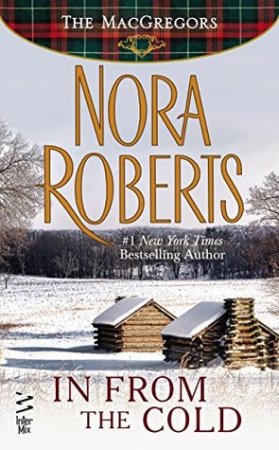 In From The Cold
In From The Cold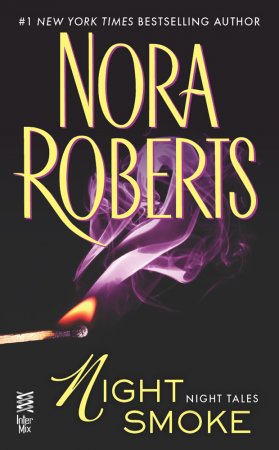 Night Smoke
Night Smoke Finding the Dream
Finding the Dream Red Lily
Red Lily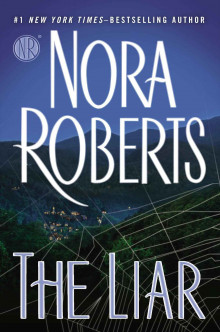 The Liar
The Liar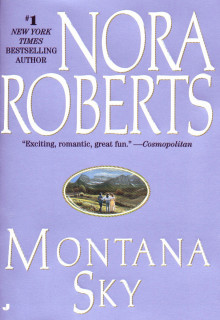 Montana Sky
Montana Sky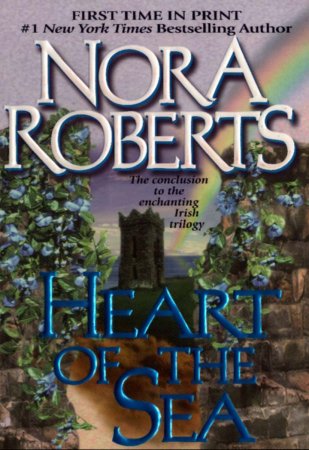 Heart of the Sea
Heart of the Sea All The Possibilities
All The Possibilities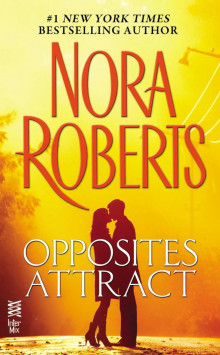 Opposites Attract
Opposites Attract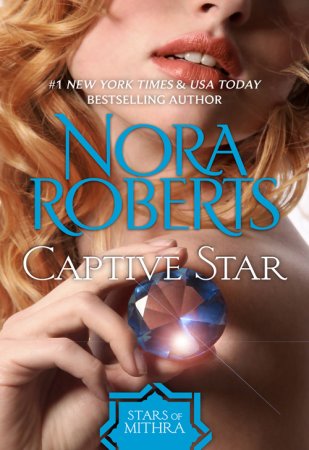 Captive Star
Captive Star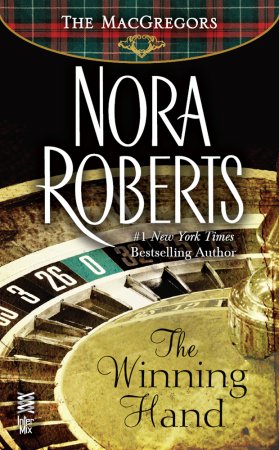 The Winning Hand
The Winning Hand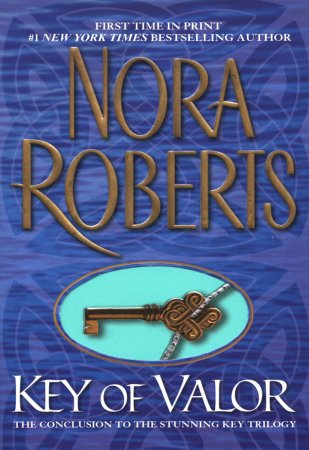 Key of Valor
Key of Valor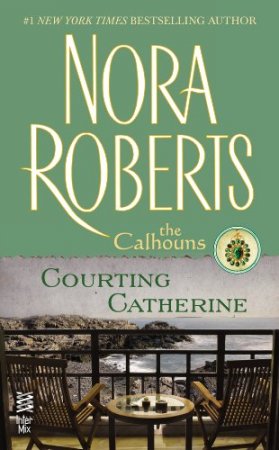 Courting Catherine
Courting Catherine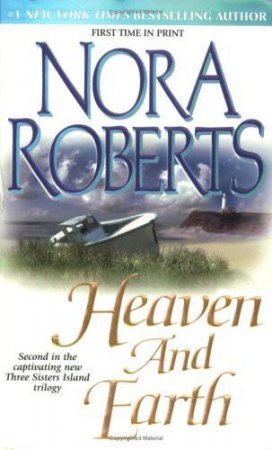 Heaven and Earth
Heaven and Earth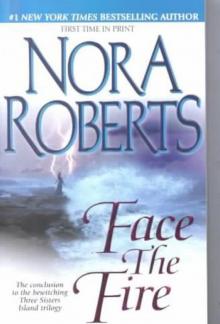 Face the Fire
Face the Fire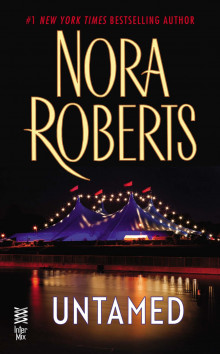 Untamed
Untamed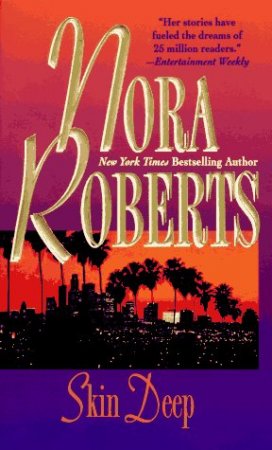 Skin Deep
Skin Deep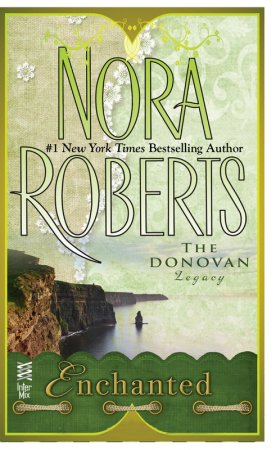 Enchanted
Enchanted Song of the West
Song of the West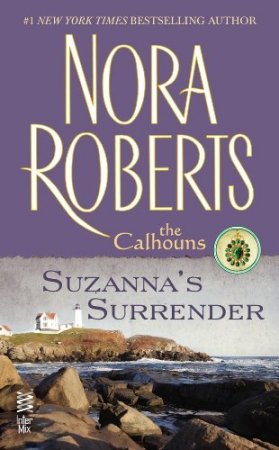 Suzanna's Surrender
Suzanna's Surrender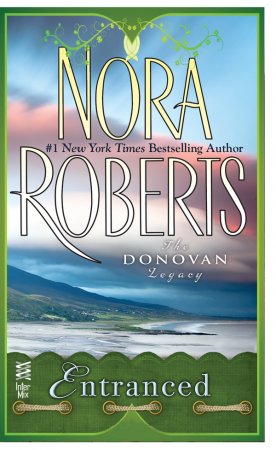 Entranced
Entranced Dance of the Gods
Dance of the Gods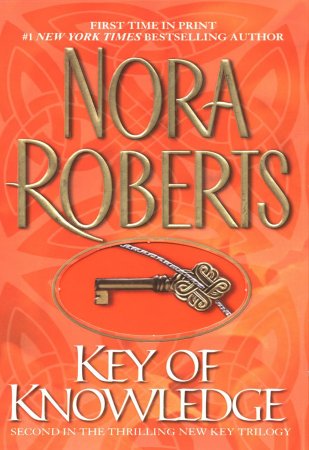 Key of Knowledge
Key of Knowledge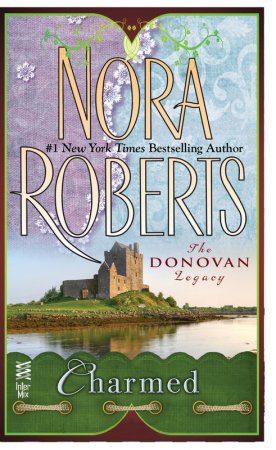 Charmed
Charmed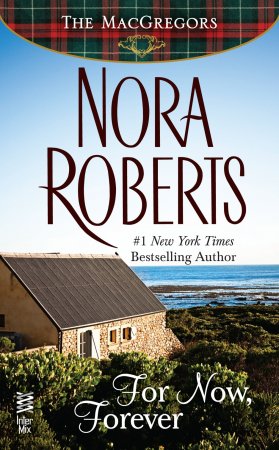 For Now, Forever
For Now, Forever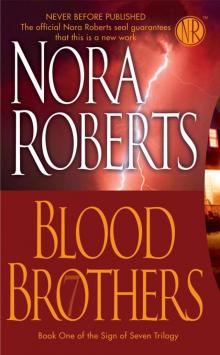 Blood Brothers
Blood Brothers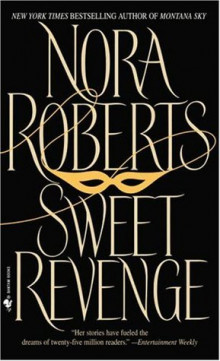 Sweet Revenge
Sweet Revenge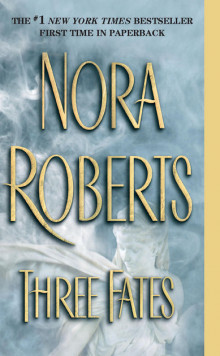 Three Fates
Three Fates Mind Over Matter
Mind Over Matter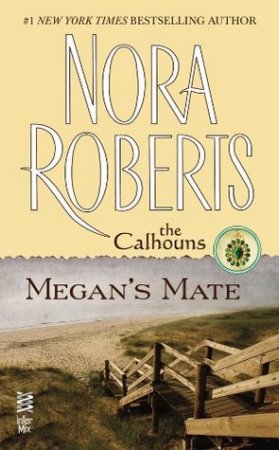 Megan's Mate
Megan's Mate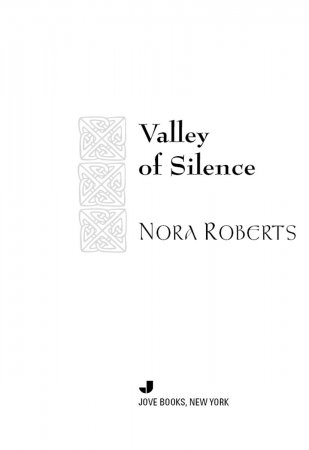 Valley of Silence
Valley of Silence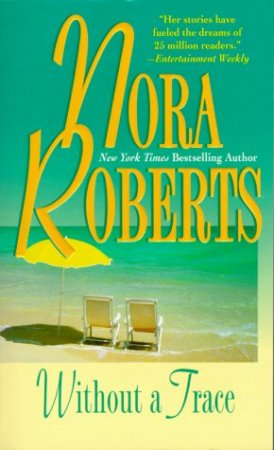 Without A Trace
Without A Trace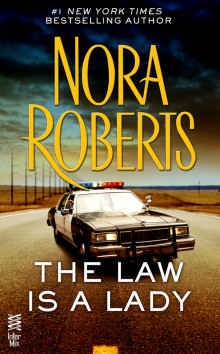 The Law is a Lady
The Law is a Lady Temptation
Temptation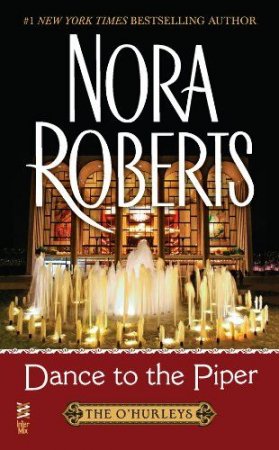 Dance to the Piper
Dance to the Piper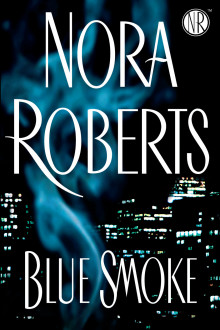 Blue Smoke
Blue Smoke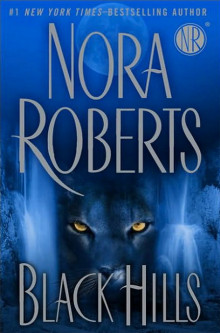 Black Hills
Black Hills The Heart's Victory
The Heart's Victory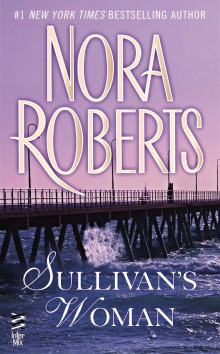 Sullivan's Woman
Sullivan's Woman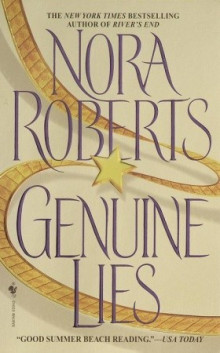 Genuine Lies
Genuine Lies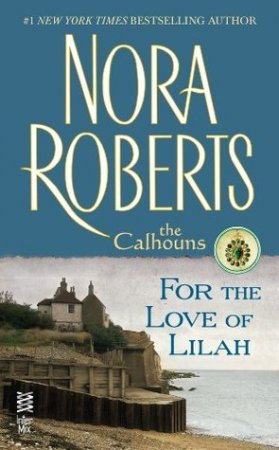 For the Love of Lilah
For the Love of Lilah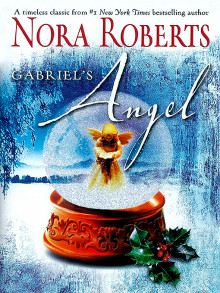 Gabriel's Angel
Gabriel's Angel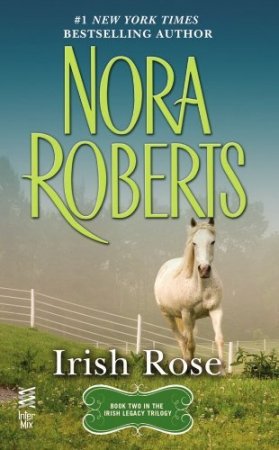 Irish Rose
Irish Rose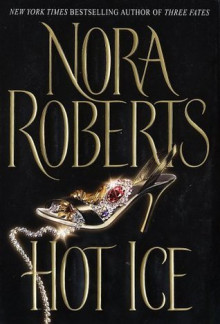 Hot Ice
Hot Ice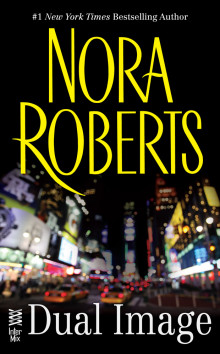 Dual Image
Dual Image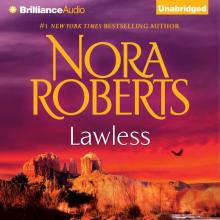 Lawless
Lawless Catch My Heart
Catch My Heart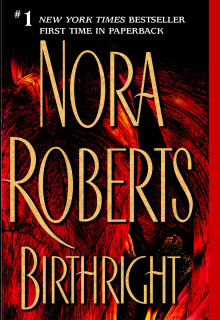 Birthright
Birthright First Impressions
First Impressions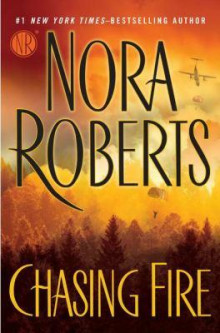 Chasing Fire
Chasing Fire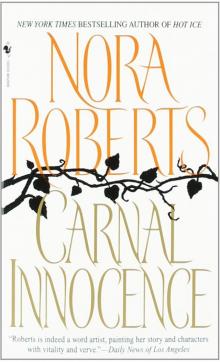 Carnal Innocence
Carnal Innocence Best Laid Plans
Best Laid Plans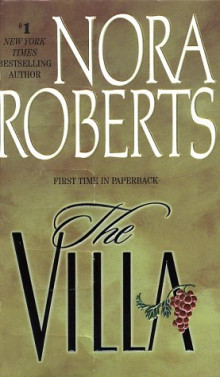 The Villa
The Villa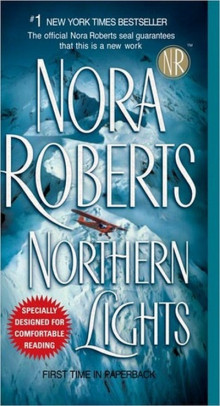 Northern Lights
Northern Lights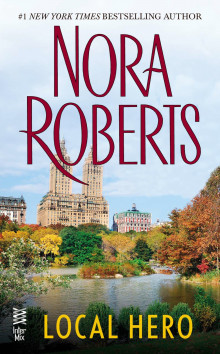 Local Hero
Local Hero Island of Flowers
Island of Flowers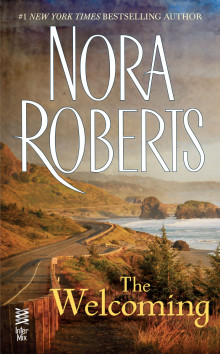 The Welcoming
The Welcoming All I Want for Christmas
All I Want for Christmas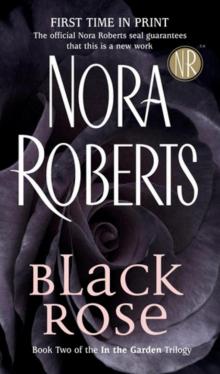 Black Rose
Black Rose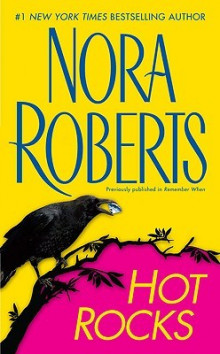 Hot Rocks
Hot Rocks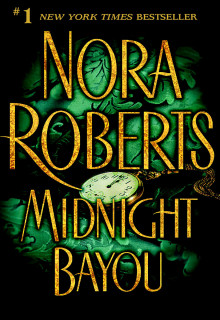 Midnight Bayou
Midnight Bayou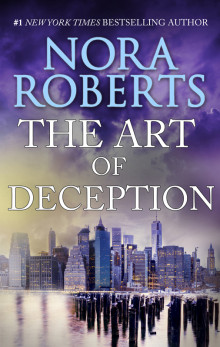 The Art of Deception
The Art of Deception From This Day
From This Day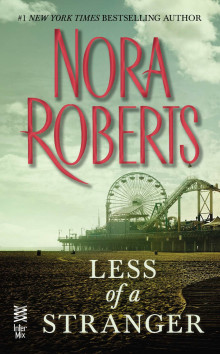 Less of a Stranger
Less of a Stranger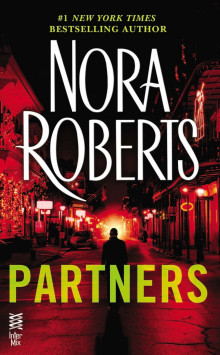 Partners
Partners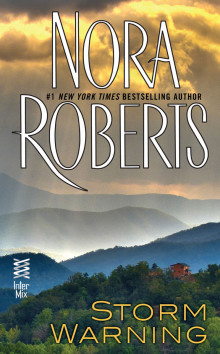 Storm Warning
Storm Warning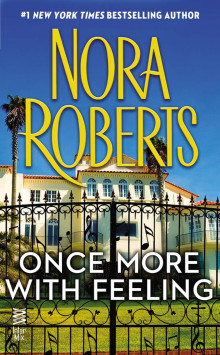 Once More With Feeling
Once More With Feeling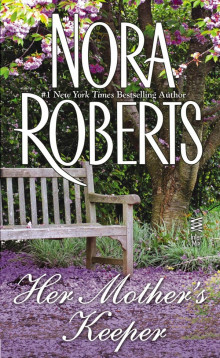 Her Mother's Keeper
Her Mother's Keeper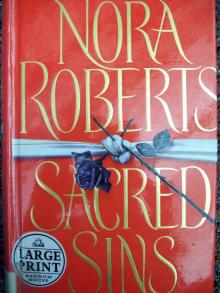 Sacred Sins
Sacred Sins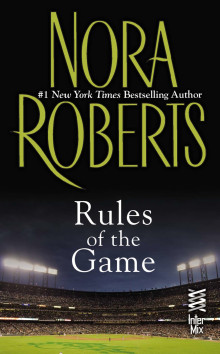 Rules of the Game
Rules of the Game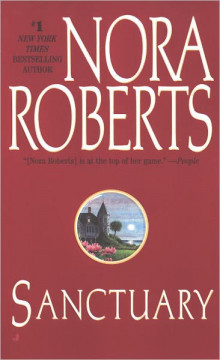 Sanctuary
Sanctuary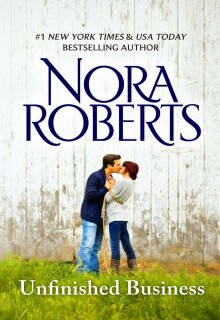 Unfinished Business
Unfinished Business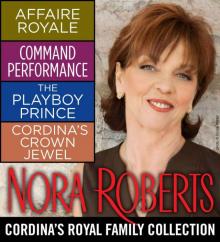 Cordina's Royal Family Collection
Cordina's Royal Family Collection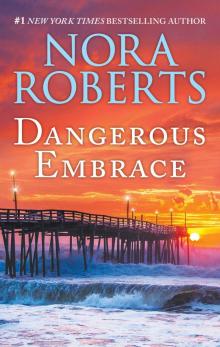 Dangerous Embrace
Dangerous Embrace One Summer
One Summer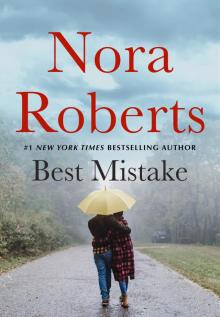 The Best Mistake
The Best Mistake Boundary Lines
Boundary Lines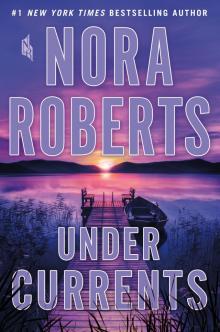 Under Currents
Under Currents The Stanislaski Series Collection, Volume 1
The Stanislaski Series Collection, Volume 1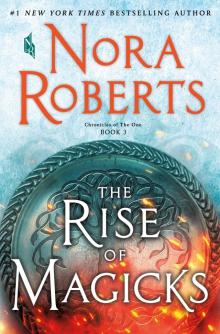 The Rise of Magicks
The Rise of Magicks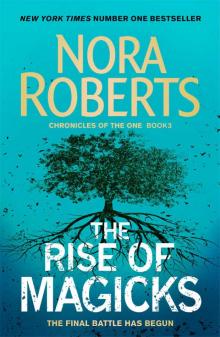 The Rise of Magicks (Chronicles of The One)
The Rise of Magicks (Chronicles of The One)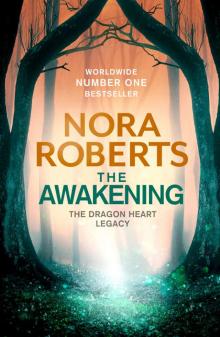 The Awakening: The Dragon Heart Legacy Book 1
The Awakening: The Dragon Heart Legacy Book 1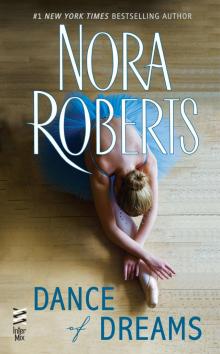 Dance of Dreams
Dance of Dreams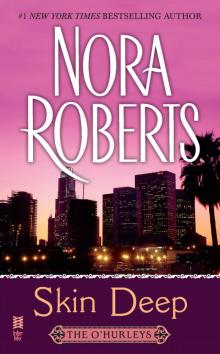 Skin Deep: The O'Hurleys
Skin Deep: The O'Hurleys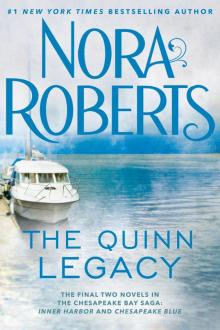 The Quinn Legacy: Inner Harbor ; Chesapeake Blue
The Quinn Legacy: Inner Harbor ; Chesapeake Blue![[Chronicles of the One 03.0] The Rise of Magicks Read online](http://i1.bookreadfree.com/11/chronicles_of_the_one_03_0_the_rise_of_magicks_preview.jpg) [Chronicles of the One 03.0] The Rise of Magicks
[Chronicles of the One 03.0] The Rise of Magicks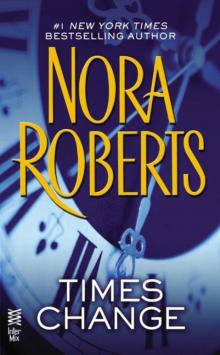 Times Change
Times Change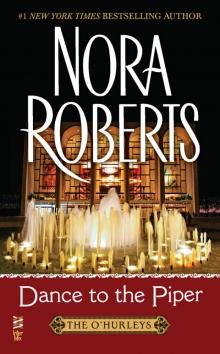 Dance to the Piper: The O'Hurleys
Dance to the Piper: The O'Hurleys Christmas In the Snow: Taming Natasha / Considering Kate
Christmas In the Snow: Taming Natasha / Considering Kate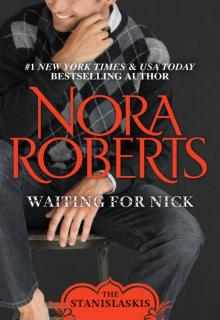 Waiting for Nick
Waiting for Nick Summer Desserts
Summer Desserts Dream 2 - Holding the Dream
Dream 2 - Holding the Dream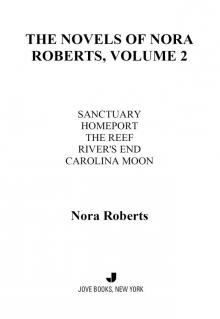 The Novels of Nora Roberts, Volume 2
The Novels of Nora Roberts, Volume 2 In the Garden Trilogy
In the Garden Trilogy Eight Classic Nora Roberts Romantic Suspense Novels
Eight Classic Nora Roberts Romantic Suspense Novels Best Laid Plans jh-2
Best Laid Plans jh-2 From the Heart
From the Heart Holiday Wishes
Holiday Wishes Dream 1 - Daring to Dream
Dream 1 - Daring to Dream Second Nature
Second Nature Summer Pleasures
Summer Pleasures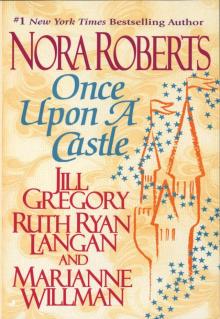 Once Upon a Castle
Once Upon a Castle Stars of Mithra Box Set: Captive StarHidden StarSecret Star
Stars of Mithra Box Set: Captive StarHidden StarSecret Star Impulse
Impulse The Irish Trilogy by Nora Roberts
The Irish Trilogy by Nora Roberts The Pride Of Jared Mackade tmb-2
The Pride Of Jared Mackade tmb-2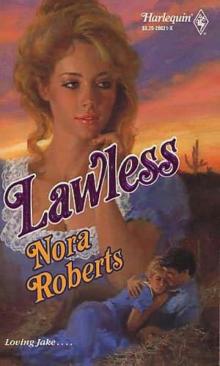 Lawless jh-3
Lawless jh-3 Taming Natasha
Taming Natasha Endless Summer
Endless Summer Bride Quartet Collection
Bride Quartet Collection Happy Ever After tbq-4
Happy Ever After tbq-4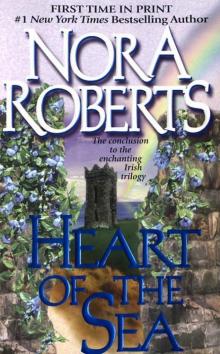 Heart Of The Sea goa-3
Heart Of The Sea goa-3 Search for Love
Search for Love Once upon a Dream
Once upon a Dream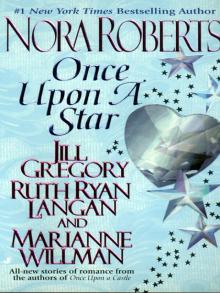 Once Upon a Star
Once Upon a Star Dream Trilogy
Dream Trilogy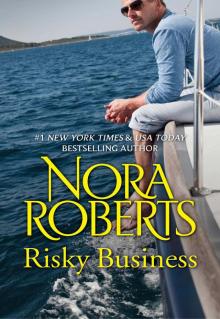 Risky Business
Risky Business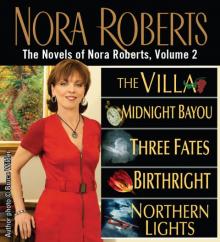 The Novels of Nora Roberts, Volume 3
The Novels of Nora Roberts, Volume 3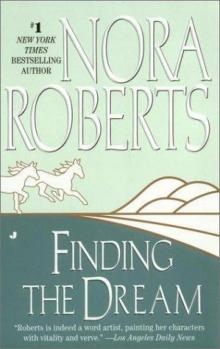 Dream 3 - Finding the Dream
Dream 3 - Finding the Dream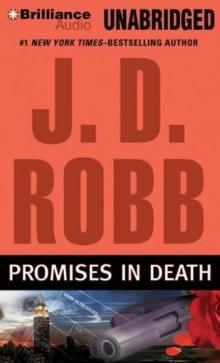 Promises in Death id-34
Promises in Death id-34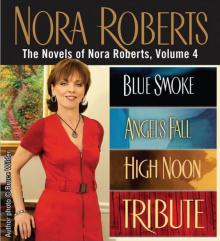 The Novels of Nora Roberts, Volume 4
The Novels of Nora Roberts, Volume 4 The Perfect Hope ib-3
The Perfect Hope ib-3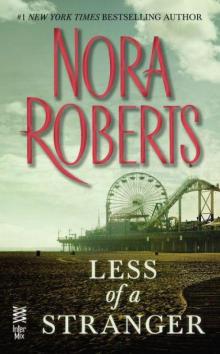 Less than a Stranger
Less than a Stranger Savour the Moment: Now the Big Day Has Finally Arrived, It's Time To...
Savour the Moment: Now the Big Day Has Finally Arrived, It's Time To... Convincing Alex
Convincing Alex Bed of Roses tbq-2
Bed of Roses tbq-2 Savour the Moment tbq-3
Savour the Moment tbq-3 Lessons Learned
Lessons Learned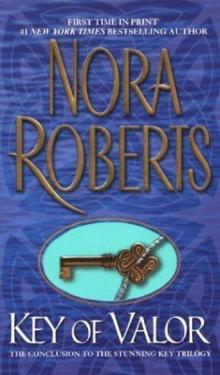 Key Of Valor k-3
Key Of Valor k-3 Red lily gt-3
Red lily gt-3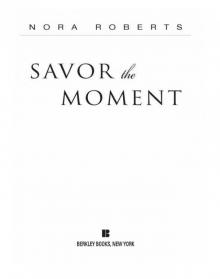 Savor the Moment
Savor the Moment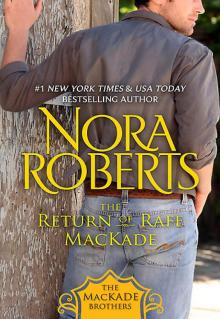 The Return Of Rafe Mackade tmb-1
The Return Of Rafe Mackade tmb-1 For The Love Of Lilah tcw-3
For The Love Of Lilah tcw-3 Black Rose gt-2
Black Rose gt-2 Novels: The Law is a Lady
Novels: The Law is a Lady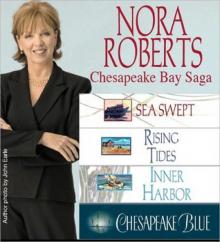 Chesapeake Bay Saga 1-4
Chesapeake Bay Saga 1-4 Considering Kate
Considering Kate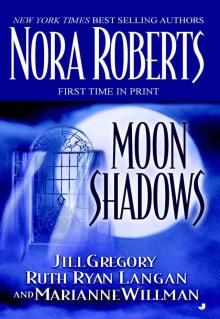 Moon Shadows
Moon Shadows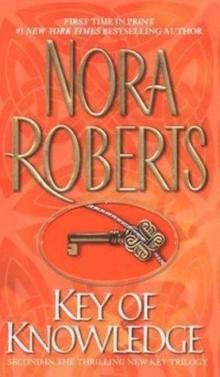 Key of Knowledge k-2
Key of Knowledge k-2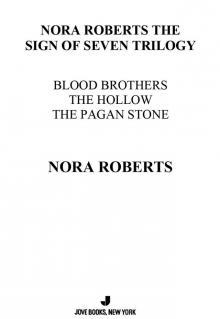 The Sign of Seven Trilogy
The Sign of Seven Trilogy Once Upon a Kiss
Once Upon a Kiss The Novels of Nora Roberts, Volume 5
The Novels of Nora Roberts, Volume 5 Suzanna's Surrender tcw-4
Suzanna's Surrender tcw-4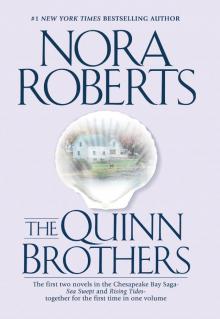 The Quinn Brothers
The Quinn Brothers Falling for Rachel
Falling for Rachel Brazen Virtue
Brazen Virtue Time Was
Time Was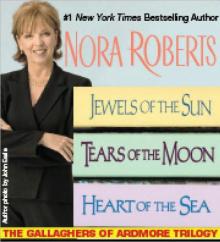 The Gallaghers of Ardmore Trilogy
The Gallaghers of Ardmore Trilogy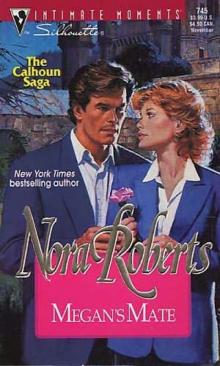 Megan's Mate tcw-5
Megan's Mate tcw-5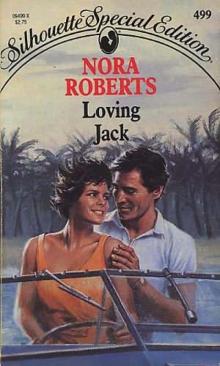 Loving Jack jh-1
Loving Jack jh-1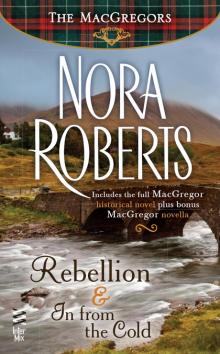 Rebellion & In From The Cold
Rebellion & In From The Cold Blue Dahlia gt-1
Blue Dahlia gt-1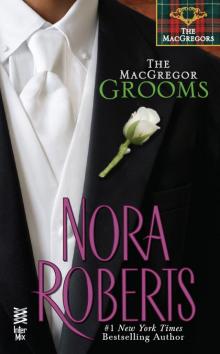 The MacGregor Grooms
The MacGregor Grooms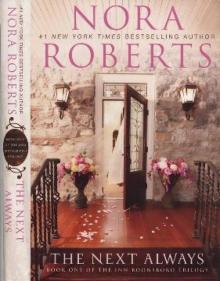 The Next Always tibt-1
The Next Always tibt-1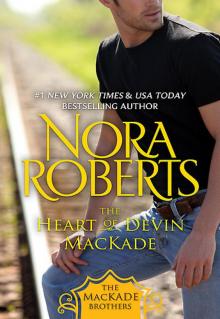 The Heart Of Devin Mackade tmb-3
The Heart Of Devin Mackade tmb-3 The Novels of Nora Roberts Volume 1
The Novels of Nora Roberts Volume 1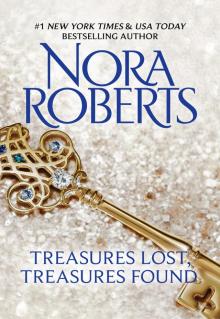 Treasures Lost, Treasures Found
Treasures Lost, Treasures Found Nora Roberts's Circle Trilogy
Nora Roberts's Circle Trilogy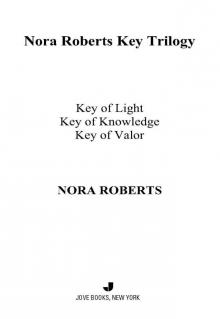 The Key Trilogy
The Key Trilogy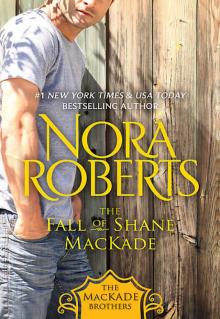 The Fall Of Shane Mackade tmb-4
The Fall Of Shane Mackade tmb-4 A Will And A Way
A Will And A Way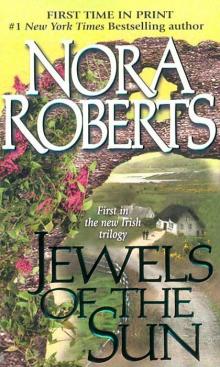 Jewels of the Sun goa-1
Jewels of the Sun goa-1 Luring a Lady
Luring a Lady